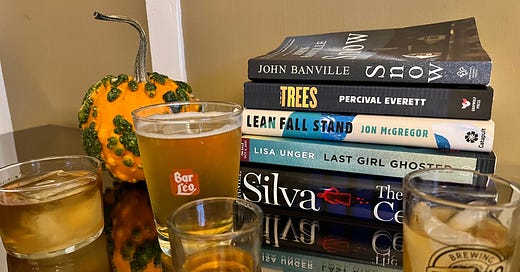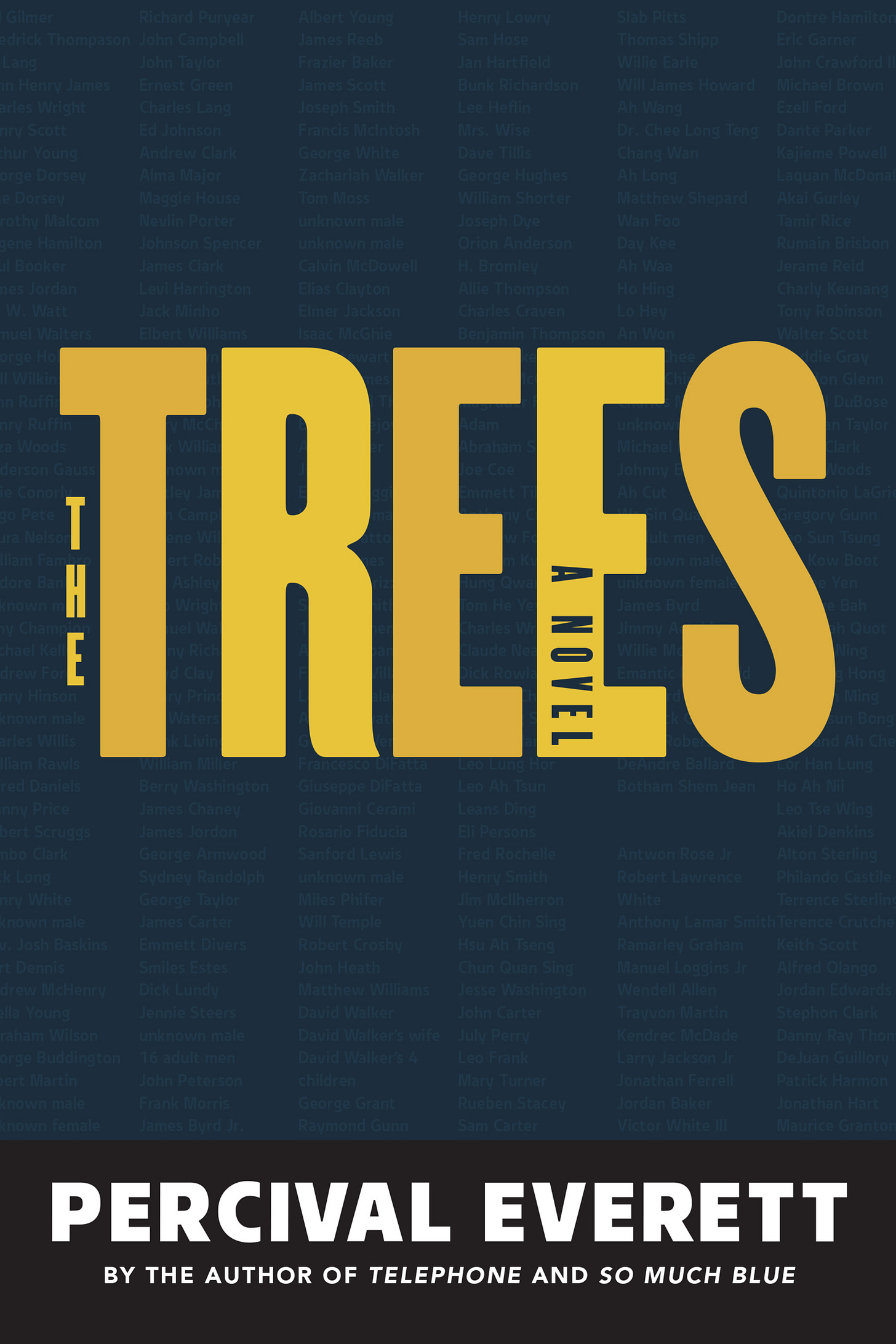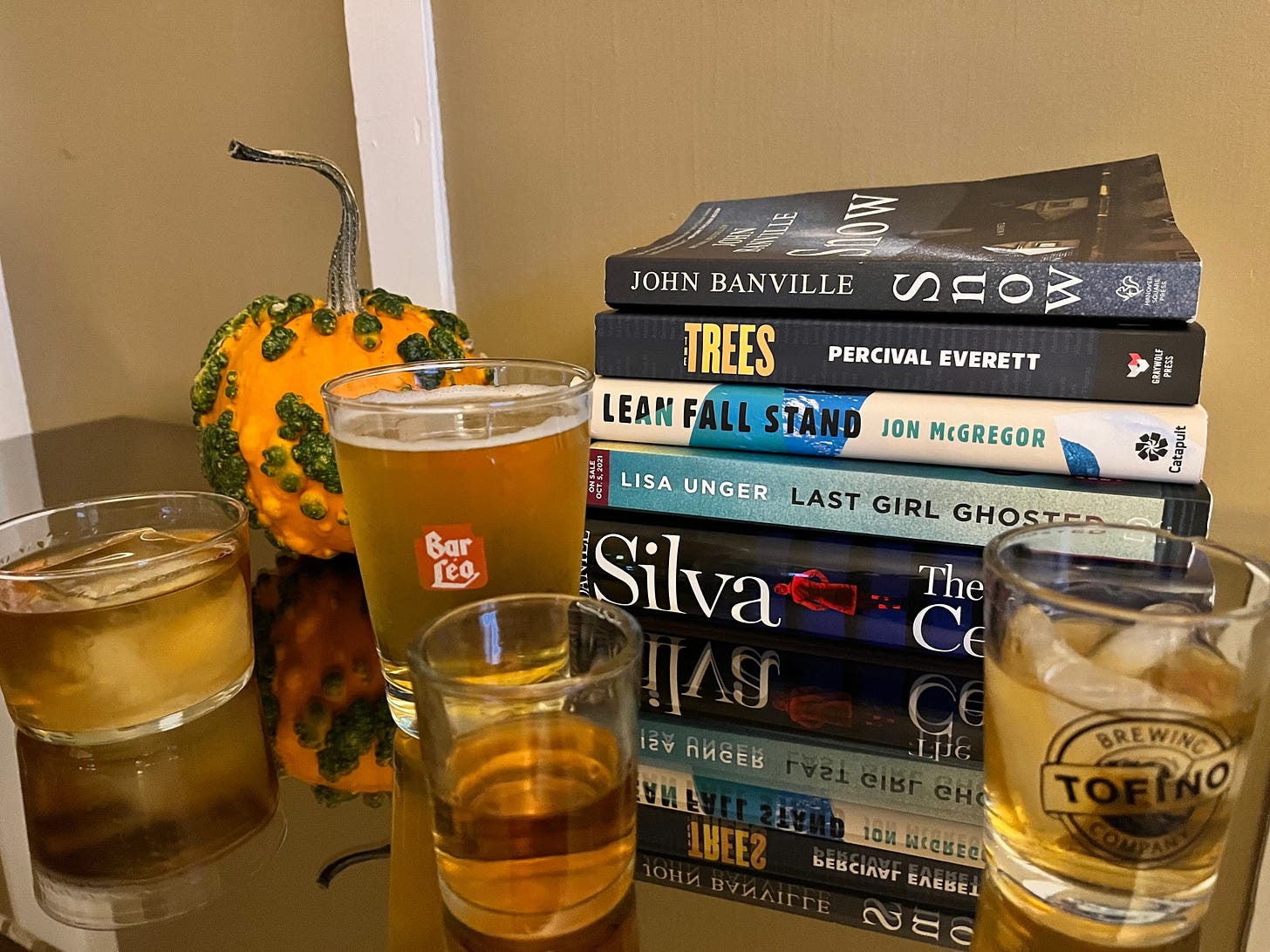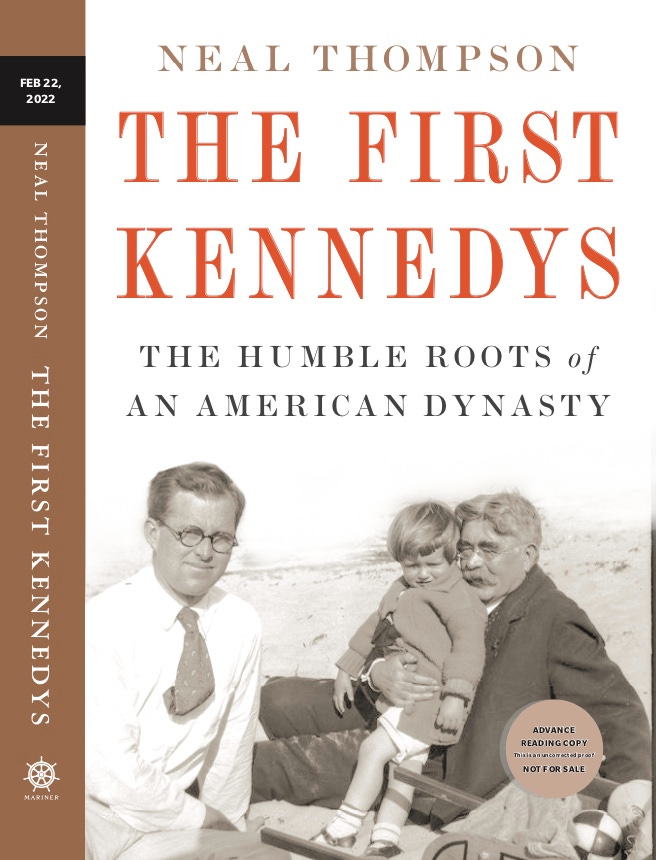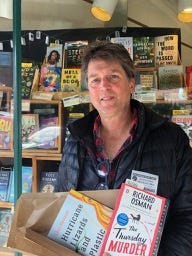Blood & Whiskey #6
Lisa Unger, Percival Everett, John Banville, Patricia Highsmith's notebooks, how to drink straight whiskey, and an all-whiskey playlist
Dear friends and readers…
This is the 6-month anniversary of Blood & Whiskey, so let’s dive right in… Among other emotions, Lisa Unger’s timely Last Girl Ghosted (Park Row Books) left me feeling grateful to be an old married guy who never experienced the weirdness of online dating. (Then again, my son met his girlfriend on Tinder and they’re going on two years, so what do I know.) Still, as Unger shows us, swiping right on a cute face can be a dangerous act.
I loved how much was packed into these pages: not just love and hurt in the age of Tinder, but doomsday preppers and bitcoiners, digital privacy and the dark web, and even whiffs of early Covid-19. I also admire an author who doesn’t hold back, who teases us with the possibility that someone can’t really be all that bad, but then slaps us in the face: Of course they can, dummy!
The gist: Wren Greenwood has escaped a traumatic childhood to become a successful advice columnist and podcaster. She falls for a man she meets online, but then he ghosts her, and all his online profiles disappear with him. As Wren searches for answers, she learns she wasn’t the only woman to fall for the mysterious, handsome “Adam.” But … why are the other women missing?
It was well researched and Unger’s writing is fast, urgent, catchy, sharp and smart. I reached out to ask her a few questions, and I have to call out my favorite line: writing is “the place where I go to metabolize darkness.”
Lisa Unger mini Q&A…
Origins: I had a conversation with a young friend about dating apps. She talked about how there was an endless pool of choices and how you could just keep scrolling to the next and the next one. She wondered: How could you ever know if you’d picked the right one? And then she went on to say how easy it was, if someone turned out not to be what you expected from your online connection, to just ghost him and never see him again. The whole conversation made the modern search for love seem so broken, so despairing. The things she said stayed with me and were the germ for the story.
Mood: Wren comes from a place of darkness and trauma, so that atmosphere pervades the book but with an undercurrent of hope, as she searches for the light and tries to lead other people there in her work as advice columnist Dear Birdie.
Risk/Fuel: For the writing of this book the biggest challenge and the biggest driver were one and the same. I wrote this book during the pandemic so there was chaos roaring outside in the world. And everything seemed to be shifting and changing in wild and unpredictable ways. But for me writing has always been an escape hatch, the place where I go to metabolize darkness, to order chaos. So as much as the pandemic was a challenge to creativity and presence in the work, those dark days drove me deeper into my fiction.
Favorite line: The last line is in many ways the heart of the novel. "Love is the way."
+ watch an interview with Lisa and Colette Bancroft, book editor at the Tampa Bay Times (one of my many alma maters), sponsored by Tombolo Books
The Trees (Graywolf Press) — by Percival Everett
This was a thrilling, strange and wildly funny read that I highly recommend, with one caveat. The gist: southern white men (and a few women) are turning up violently dead, and at each murder scene is the corpse of a Black man who resembles Emmett Till, the 14-year-old who’d been brutally lynched in 1955. (His mother insisted on an open casket, so people could see the mutilation her son suffered.) Two Mississippi Bureau of Investigation (MBI) detectives visit Money, Mississippi to investigate, despite resistance from the local sheriff. That duo, Jim Davis and Ed Morgan, both Black, are among the best characters I’ve met this year and the voices behind some of the best dialogue. They team up with a waitress named Daisy (clearly more than a waitress) and her grandmother, Mama Z, who’s been conducting research on every lynching in the US since 1913 — “a monument to the dead,” she calls it. When the recent murders and the Emmett Till-looking corpses expand far beyond Mississippi, Davis and Morgan and Co. realize they’re up against something bigger and darker than small town murders. And here’s the caveat: those seeking a typical murder mystery might be disappointed, while those game for something more powerful and stealthily profound will discover a story about the lingering influence of white supremacy and racial violence in America. In one terrible and moving chapter, Everett lists the names of men and women of color killed in a lynching. Says the character scribbling the names on a legal pad: “When I write the names they become real, not just statistics.” Reader: the list of names goes on for ten pages.
Everett remains a slightly under-the-radar writer (at least in the mainstream), but he’s brilliant and fearless. His last book, Telephone, was a Pulitzer finalist and his 2017 book So Much Blue is one of my favorites of the past five years. (Both are published by the fantastic Minneapolis indie, Graywolf Press.)
+ for more, check out reviews by the LA Times and NPR
Snow (Hanover Square Press) — by John Banville
Banville’s Snow is a more traditional whodunnit, with a priest who turns up dead in the library of a manor house in 1957. Not just murdered, but castrated. Set in rural County Wexford (which, btw, is where the “first Kennedys” in my forthcoming The First Kennedys emigrated from), Banville has lots of fun with murder-mystery tropes and tosses off more than a few nods to the grand dame, Agatha Christie (and the game Clue). “It’s a library,” says one detective, “An actual fucking library, and there’s a body in it.” There’s a colonel and a candlestick, too. Detective Inspector St. John Strafford is sent from Dublin to investigate — a non-drinking Protestant in a boozy Catholic stronghold — and starts to peel away the layers of the secretive Osborne family, their help, the neighbors, and the church. “Maybe they all did it,” ventures one detective. “Like in the book by what’s-her-name?” As an ex-Catholic who spent years in the company of priests, the conclusion was sadly not a total surprise.
+ for more, see the New York Times and The Atlantic (apologies if you hit a paywall)
Also read or reading…
April in Spain (Hanover Square), by John Banville — A follow up to Snow.
The Cellist (HarperCollins) by Daniel Silva — Finally getting around to the latest Gabriel Allon international thriller. As usual, it’s a blast. I’m halfway.
Blood in the Water: A True Story of Small Town Revenge (Steerforth), by (great name!) Silver Donald Cameron — The story of a Nova Scotia man murdered by local fishermen after one too many thefts of their lobster pots. It comes out next month, and I’ll have more to say then.
Pappyland: A Story of Family, Fine Bourbon, and the Things That Last (Penguin Press), by Wright Thompson — been wanting to get to this one for a while. The story behindPappy Van Winkle bourbon.
Lean Fall Stand (Catapult), by John McGregor — not quite Blood & Whiskey fare, not mystery nor thriller, but I love this Irish writer’s sentences. Three men in Antarctica are pummeled by a sudden storm, and amid the white-out confusion a mystery emerges… The first third is an adrenaline rush, but most of book explores one man’s recovery from the incident. I finished it, and admired it, even if it felt tedious (and horribly sad) at times.
Walk With Me: A Biography of Fannie Lou Hamer (Oxford University Press), by Kate Clifford Larson — on the TBR stack.
Finally, I read a great New Yorker piece (paywall alert) about the forthcoming publication (from WW Norton) of Patricia Highsmith’s diaries and notebooks. Here are a few samples, written between 1948 and 1950, before her success:
“I must have had five Martinis or six. Plus two Manhattans.”
“Increasingly I must be drugged to be creative.”
“There must be violence to satisfy me, and therefore drama & suspense. These are my principals.”
“I long to write, and dream of it coming out of me easily as a spider’s web.”
(on her male lover, the British writer Marc Brandel): “He makes me feel like a male pervert, a sailor in the Navy, a naughty little boy at school. He has a knack of not knowing what I want.”
“Was compelled to drink two ryes before I took the 92 bus, the wrong one, toward Murray Ave.”
“Murder is a kind of making love, a kind of possessing.”
See below (*) for info on buying books mentioned in Blood & Whiskey.
Cocktail of the Month…
In honor of Blood & Whiskey’s six-month birthday, I’m keeping it simple here, sharing my three favorite ways to drink straight whiskey. Experienced whiskey drinkers might be rolling their eyes (dad? are you reading this?), but these suggestions are based on many years of training and practice. As for which whiskey? I asked Lisa Unger, who suggested her favorite: Blanton’s Bourbon.
Whiskey Three Ways
a jigger of bourbon in a shotglass, no ice, with a cold beer chaser (something light, pilsner-y). Sip slowly. Alternate. Should last an hour.
a jigger of bourbon poured over a single large ice cube. For a really good bourbon, let the cube melt slightly to chill and dilute the whiskey.
a jigger of bourbon poured over a few cubes. This is how I usually drink my whiskey. Nothing fancy. Tasty and brisk. Read a book.
+ and that gourd in the photo? That’s my prompt to share with you my favorite annual reading of the classic… “It’s Decorative Gourd Season, Motherfuckers”
Playlist of the Month…
This month it’s all whiskey tunes, from the obvious (Willie’s “Whiskey River”) to the rockin’ (Skynyrd, Van Halen) to the weird (Tex Ritter hiccupping and hooting, and something about ducks). Apologies for the few whiffs of sexism (looking at you, Hank Williams Jr.) and the excess of twang.
Giveaway…
I’m psyched to share an ARC (advanced reading edition), aka “galley” copy, of my forthcoming book, The First Kennedys — plus a bonus book from this month’s list. To enter, share or post this newsletter somewhere on the world wide web…
Early praise for The First Kennedys (coming 2/22/22)…
“Here is that rare thing: an untold chapter in the Kennedy saga. Neal Thompson has given us a compelling and illuminating book about one of the most important families in our history—a family that represents so much about America then. And now.” —Jon Meacham, Pulitzer Prize winner and #1 New York Times bestselling author of Thomas Jefferson: The Art of Power
“A fresh, engrossing, and profoundly relatable look at a family that everyone thinks they know. Crafting a saga elevated by dogged research and transporting prose, Neal Thompson casts the humble beginnings of an American dynasty into surprising and penetrating light. Unforgettable.” —Denise Kiernan, New York Times bestselling author of The Last Castle and The Girls of Atomic City
"Just when you thought you knew everything there was to know about the Kennedys, along comes Neal Thompson with this brilliant recreation of the Irish diaspora succeeding in a city that for many years would not allow them to be part of the American story. It's great storytelling." —Timothy Egan, National Book Award winner and New York Times bestselling author of The Immortal Irishman
Thanks for reading again this month! If you haven’t officially “subscribed” you can do so by clicking above. As always, feel free to send feedback or suggestions. And please spread the word to friends and family.
Till next month….
-Neal
Find me on Instagram; sometimes on Facebook, Twitter, LinkedIn, Goodreads
And it's a battered old suitcase
To a hotel someplace
And a wound that will never heal
No prima donna, the perfume is on
An old shirt that is stained with blood and whiskey…
-Tom Waits, “Tom Traubert’s Blues”
(*) Books mentioned in Blood & Whiskey can be found on my online list at Bookshop.org (which shares a cut of each sale with independent bookstores), or at Amazon.com. I encourage you to shop local. You can find a store near you with Bookshop’s store locator tool (HERE) or the IndieBound store finder (HERE).

